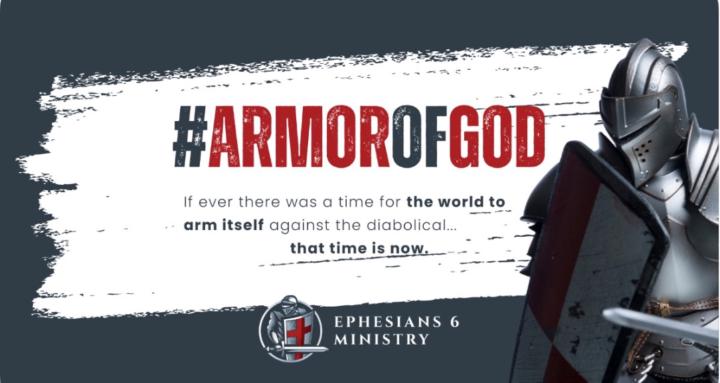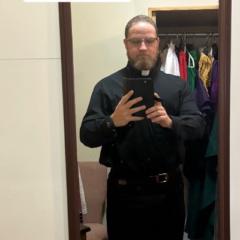Sep '25 • Learn about Virtues
Anger Vs. Wrath… Lots to say
Is anger the same as wrath? Is there a difference? In short, one is the cause, the other is its expression.
The distinction between wrath and anger is important because too often they are conflated to mean the same thing, when in fact, one is a passion with the other a vice. To be clear, passion is not a sin in itself. Vices, however, are all sins, and wrath is one of them; one of the seven “deadly” sins. In contrast, anger is the passion that can lead down one of two possible roads, one is vice, the other is virtue.
Anger is one of the passions. Passions unbridled go in any direction. They can lead to destruction as readily as victory. Like the other passions — love and hatred, desire and aversion, hope and despair, fear and daring, anger and joy — passions are movements in the soul, forward or back, towards or away from certain circumstances and situations. The intellect and the will serve to rein in one’s passions and provide direction for them. Without direction, they remain unruly, driving in whichever direction that seems most expedient. In the same way that the horse takes direction from its rider, the passions take their cue from the intellect and the will. The will and the intellect are the bridle and bit that move the passions towards their proper aim; for the virtuous, that aim is the Good. The question then, is where are those passions directed?
The difference between anger and wrath is the final orientation of that passion. It would be better and more clear to say that anger is the passion that leads either to virtue or vice; the virtue would be charity, the vice, wrath. This clarification makes apparent the truth that anger in itself is no sin, but rather what one does with that passion. For instance if someone is angry at being wrongly treated, that anger is quite reasonable. Any injustice requires some reparation. Wrath, in contrast, seeks revenge.
Wrath is an anger let loose; anger is unreasonable and their solution is the elimination of that which makes them angry. Children who have yet to learn how to master their passions, cannot express why they are angry; instead they throw tantrums, damage property (like breaking toys) and scream and yell.
Unprocessed anger remains unruly and leads to wrath. Anger, when unbridled in adults, leads to hatred, violence, vengeance, malice, and destruction. Anger that is not rooted in love or truth seeks destruction. The malicious or vengeful work to silence opposition and seek to do harm to those who disagree. They load their guns with bullets and shoot at the innocent. They scream and yell and fight, but they do so irrationally. While they claim that their motive is to root out evil, they cannot explain why the other side is evil except that it isn’t “nice” or “tolerant” or “fair.” Wrath is an adult tantrum, but more powerful and destructive, without reason, and without end.
Parents bear the responsibility for educating their child in self-mastery and guiding their passions. Children are not able to manage their passions without some guidance. The parent, then, has the duty to wait for an angry child to calm down and then help them process their anger. This will ensure that the child learns to channel anger through reason and good judgment so they can act better the next time. It is the parent’s responsibility to help their child process their anger, and learn important distinctions like the difference between the sin and the sinner, the action and the one who causes it. Children need to learn early on that there is a difference between being “bad” and “acting bad”. The child must learn to distinguish between the cause and the action itself, the agent and the action. For the vicious, the sin and sinner are inseparable: one is defined by their actions. The vengeful person will seek to define the person by their action and seek retribution. In later life, in moments of weakness, such distinctions will be necessary, not only to help others receive forgiveness, but also to overcome despair for the one who has committed some bad act and wishes to be forgiven. If forgiveness is possible, it must be for all. Parents must teach the difference between anger well-directed (when it opposes bad things and bad actions) and anger ill-fated (in wrath). That lesson will also help to balance anger with mercy and justice, in hope of redemption.
Anger, when it has been mastered by the will, becomes an energy that seeks to uphold truth, justice, and love. That is why anger in certain circumstances is not only justified, but even necessary, because it fuels the soul to act, but only if that action is measured and appropriate. Just and righteous anger must be channeled according to the truth, must seek to restore justice and must be exercised through charity. The child that learns to process their anger will be able to give reason for their passion, and represent the prudent course of action based on its cause. If the child is angry by feeling slighted? Perhaps the right course of action is to seek understanding, and become more noble. Is the cause injustice? Perhaps they can serve the cause of justice and resolution. With each instance, anger that has been mastered by the will becomes potency for change toward the good, measured of course by prudent judgment and right action.
The difference between virtue and vice can be seen in the difference between leaders and slaves. Those who channel anger appropriately become leaders, while those who cannot become slaves. Leaders seek change through dialogue, slaves follow ideologies to destruction. Leaders openly debate ideas and seek peace through the strength of their arguments. Slaves rant and rave, curse and malign. Leaders speak the truth in hope to serve the greater good, slaves lie to gain an edge and serve themselves in pride. Leaders have the humility to admit their own limitations, but do not cower because of them. Slaves cannot accept whether they are wrong and seek only that company that agrees with them. Leaders courageously cross the divide, walk into the cave of ignorance, stand at the door of their opposition, and seek common ground for dialogue. Slaves seek isolation in the dark places, remain locked in their own world-view, and intractable in their opinions: the end of slavery is isolation without solace, while the end of leadership is community and peace. Anger, rightly ordered, can do good after evil, speak peace to one’s enemies, and even plead for forgiveness after monstrous action. Anger is but the passion that moves them to make the necessary change. Disordered anger takes revenge with a bullet on the peaceful man who wanted only to share his peace.
Recent events shed light on the divergence between vice and virtue that find their motivation in the passion of anger. One course went into the lion’s den and spoke peace and truth, the other went alone on a roof with a gun to silence him. Tyler Robinson demonstrated wrath, while Charlie Kirk demonstrated justice in love through courage and hope: anger was the cause for both.
So how was Charlie Kirk’s anger channeled? It was channeled by hope and truth for change. Charlie was angry at the direction the world was taking. He was upset by the evil openly displayed in American culture. He was angry that innocent people are murdered every day. He was upset that politics is more often about being the most hyperbolic to garner attention, and refused to solve real issues, and he was upset at the epidemic caused by social media and its influence in the minds of our young people. Anger signaled that the world had taken the wrong turn when Charlie knew it could be better.
Righteous anger is one of the daughter virtues of Hope. Hope is rooted in the good. Hope promises a good life, that we were made for more, that evil is never a solution to one’s problems. Bishop Chaput in his book, Strangers in a Strange Land, remarks that Hope is not optimism: “optimism believes that things will naturally turn out for the better. Hope has no such illusions.” Hope recognizes that life can be better because good people choose to make it so. Anger is a righteous response to evil and violence and sin because we were made for more!
The other daughter virtue of Hope is courage. Courage tells us to choose to do the hard thing and change the culture. Courage tells us to love our enemies and those who persecute us. Courage tells us to dialogue with those with whom we disagree and find some way to love them. Courage tells us to turn the other cheek, to go into the lion’s den to serve the most vulnerable. It takes courage to love, it takes courage to get involved and not sit on the sidelines, it takes courage to make a difference.
Charlie Kirk was a man of hope. A world divided by politics, rhetoric more about hyperbole and gainsmanship rather than serving the public, bent on harming the other side rather than preserving the good in society led Charlie to go into the Lion’s den and talk to the next generation. Charlie was a man of hope who was angry that the world had become so divided and sought to turn the corner through the next generation. His “prove me wrong” tour was an invitation to engage in dialogue with people that viewed him as their enemy. He spoke with charity, clarity, and a little humor in order to engage the next generation in the debate that would cause some reflection and perhaps give them some light in what had already become a dark world. Even when he was threatened with violence, treated with hostility, he chose to remain calm, peacefully challenge, and simply talk. In short, Charlie Kirk was a man of hope who sought to change the world around him because he believed we could all be better.
Live for Love. The Gospel was one of many of Charlie’s talking points. He loved to explain that Jesus offered us the hope of a better life. He spoke of how He knew the love of Jesus because Jesus was his savior. Jesus taught us that the better way to live is to serve. Jesus embraced the cross in the hope of new life. We had nothing to offer — broken by sin, self-absorbed by our pride, lost in the darkness of error, and Jesus showed us the light of His love by courageously picking up His cross and sacrificing His life for us on Calvary. To hope is to receive the Savior’s love and use it as fuel to make that love known. Charlie did this, and it is for this that he will be best remembered. He would remind his listeners to focus on being people of virtue. He would inspire young men to master their passions, to start families, to seek the truth, to live honorably, and to become leaders by becoming great, good men. Charlie Kirk tried to influence young men to become the best version of themselves rather than become the lemming social media often turns out. He tried to reach men like Tyler Robinson to show him that life could be a better way. He tried to lead those who needed guidance especially when it seemed like wrath was winning the day.
How important it was to see then, the love displayed by Charlie’s wife, Erika, at her husband’s recent memorial; “I forgive that young man.” She followed her late husband’s lead by choosing to forgive, to separate the sinner from the sin, and offer redemption over vengeance. Love brings communion: wrath devolves into destruction. Love was crucified on a tree, while wrath nailed Him there, but Love was raised on the third day while wrath will forever be damned in the grave.
Choose love, then. If you are angry, then choose to embrace the hope of Christ to find redemption. Live courageously the call to love. Serve your neighbor, and make a difference. The world needs courageous people, it needs you to be courageous. “If you are angry, let it be without sin.” Turn your anger into a powerful aid for justice, truth, and love.
7
6 comments

skool.com/ephesians6ministry
Put on the Full Armor of God. Get Fit for the Kingdom! Strengthen your relationship with Jesus. Overcome habitual sins. Find community support!
Powered by





